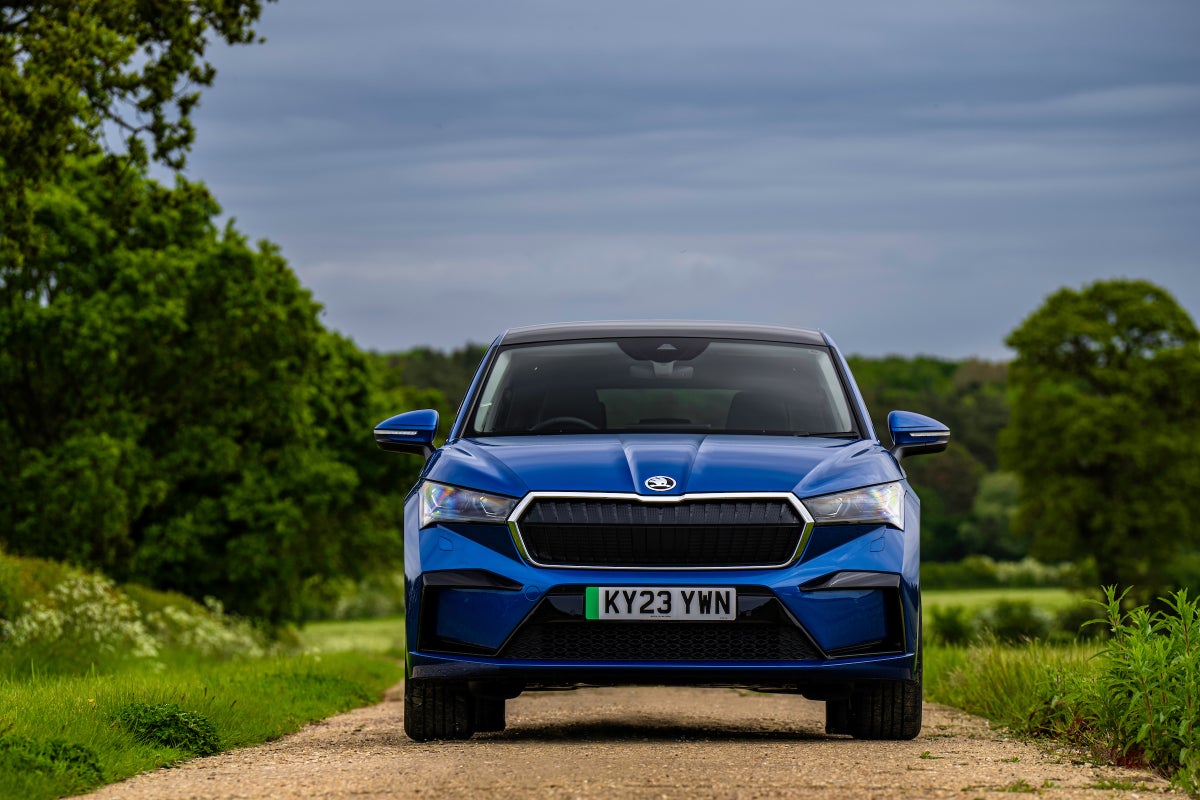
At a recent press event, Skoda proudly presented its new Enyaq, which, according to the screaming big decals all over it, had claimed the Guinness World Records title for the longest ice drift. Apparently this historic event occurred on a frozen Lake Stortjarnen, in Krokom, Sweden, on Thursday 19 January 2023.
Thinking no more of it, because sliding around on ice without anything to bang into isn’t that big a deal, as Bambi could testify, it wasn’t until I came to write this review and did some cursory research that I noticed that the ice slide went on for no less than – Roy Castle voice – 7.351 kilometres, or about four and a half miles.
So, fair play, that is a long way to go sideways without making any kind of impact. I believe the Liberal Democrats are thinking about challenging Skoda’s eccentric achievement.
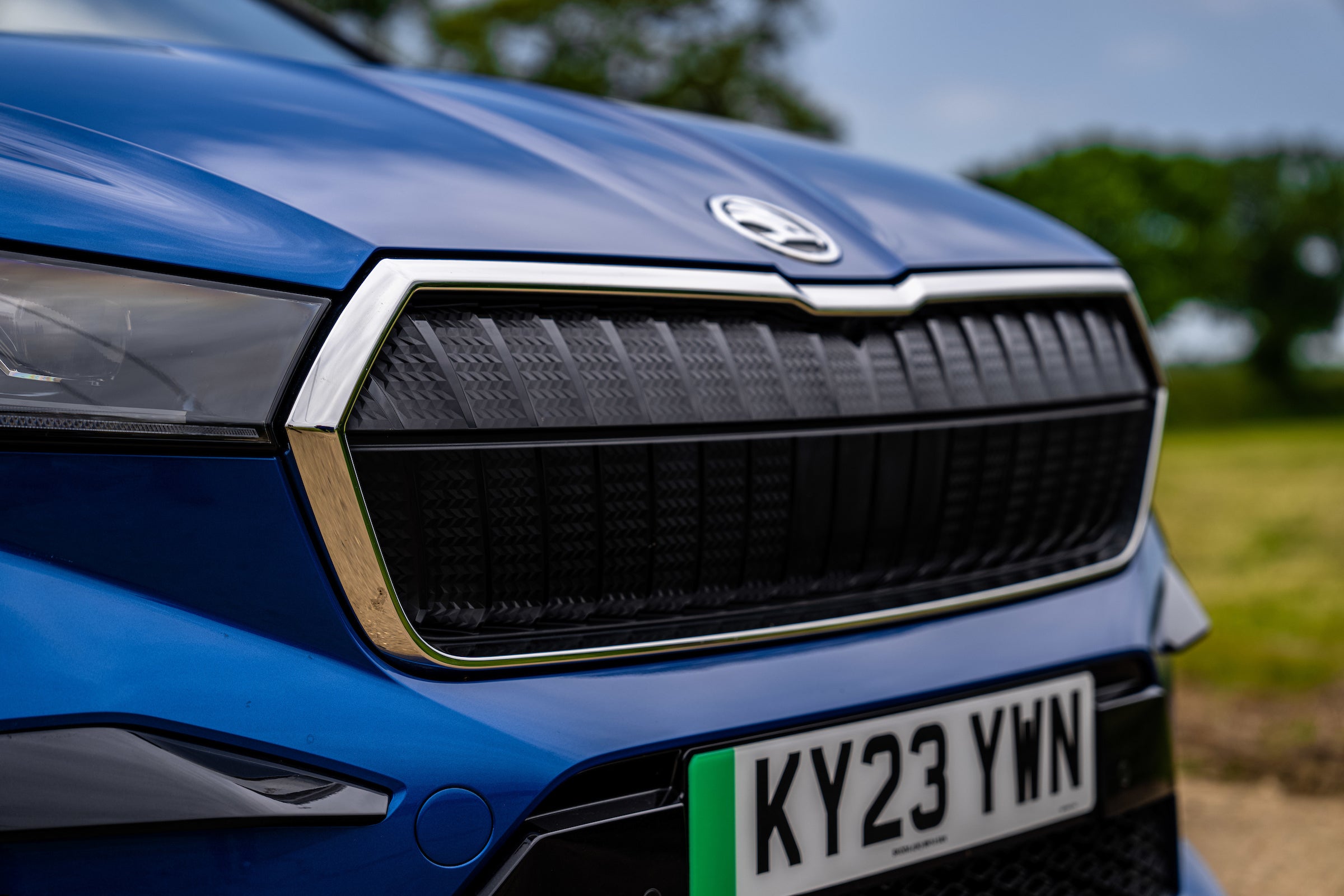
Given that, even with the climate emergency and our erratic weather, gouging sideways for a few miles on ice isn’t going to be much use to the British motorist, it’s just as well that Skoda have engineered their latest, sportiest Enyaq battery electric vehicle, the Enyaq Coupe vRS, to go very well indeed in a straight line, and moderately well around corners.
By comparison with its performance-oriented cousin, the petrol Octavia vRS (which in turn has quite a lot of Golf GTI in its make-up), the electric Enyaq is a shade faster to 60mph, and has plenty of oomph thanks to an impressively big battery pack (82kWh), which yields almost 300 horsepower. Of course it needs it to push this two-tonner along, but even so, the sheer power available even at quite high speeds (the traditional weak point of electric cars) is satisfying if not thrilling.
Even in the most urgent “Sport” mode, the power delivery is calmly but firmly applied, via an electric motor on each axle, biased to the rear, thus giving it Quattro-style four-wheel drive.
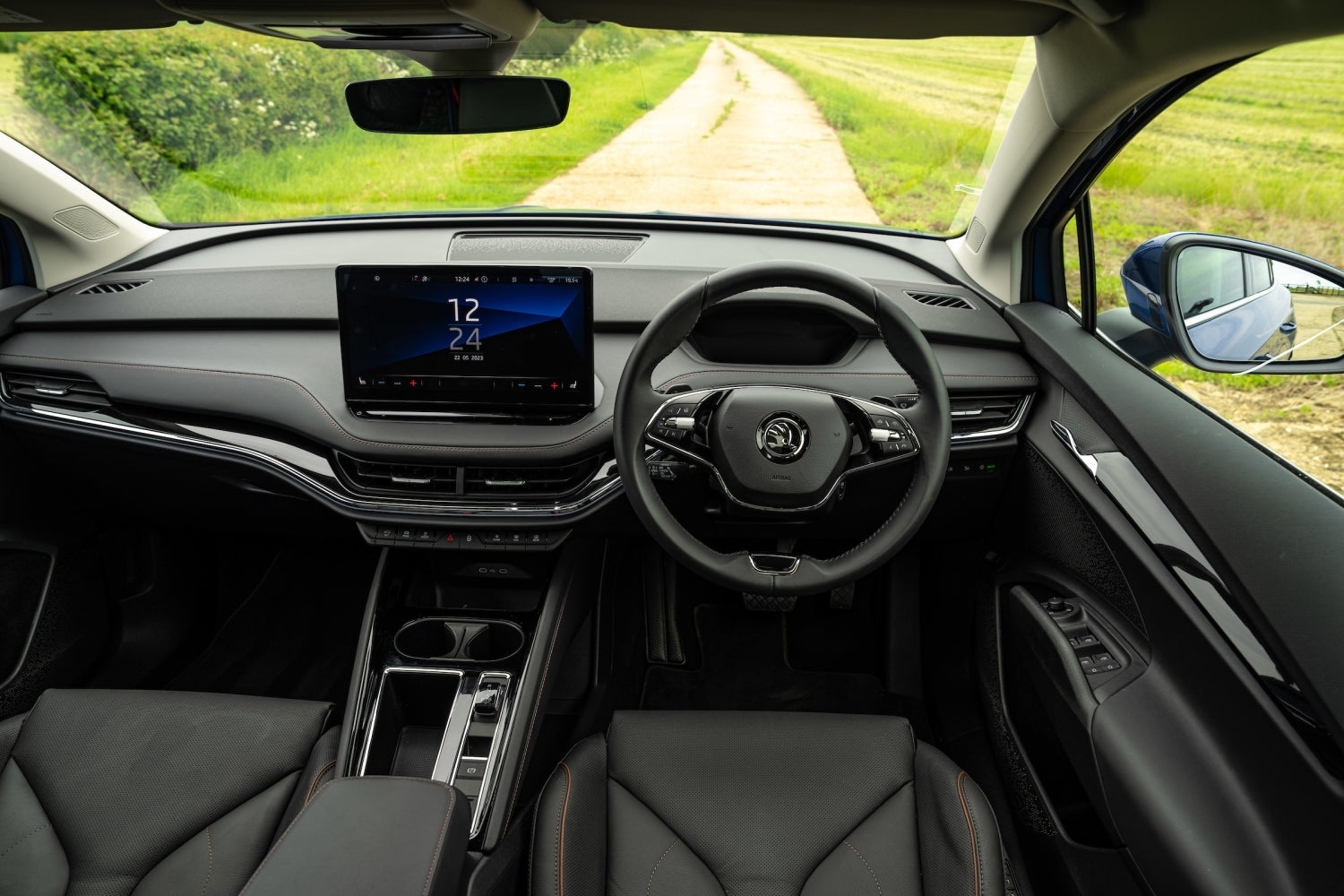
Yet even the clever people at Skoda, and its parent VW Group, can’t deny the laws of Newtonian physics, and the Skoda never feels like it really wants to get its huge weight around a tight corner at any sort of undignified pace. It just never feels like it’s in the mood, if you see what I mean. So much so that, in contrast to its prowess at a straight-line sprint, it feels fairly underwhelming as a quasi-sports saloon.
The unkind would say it’s unworthy to wear the vRS badge, but it’s really no worse than any other slightly oversized and over-heavy (and overpriced) SUV, of which there are many in the marketplace.
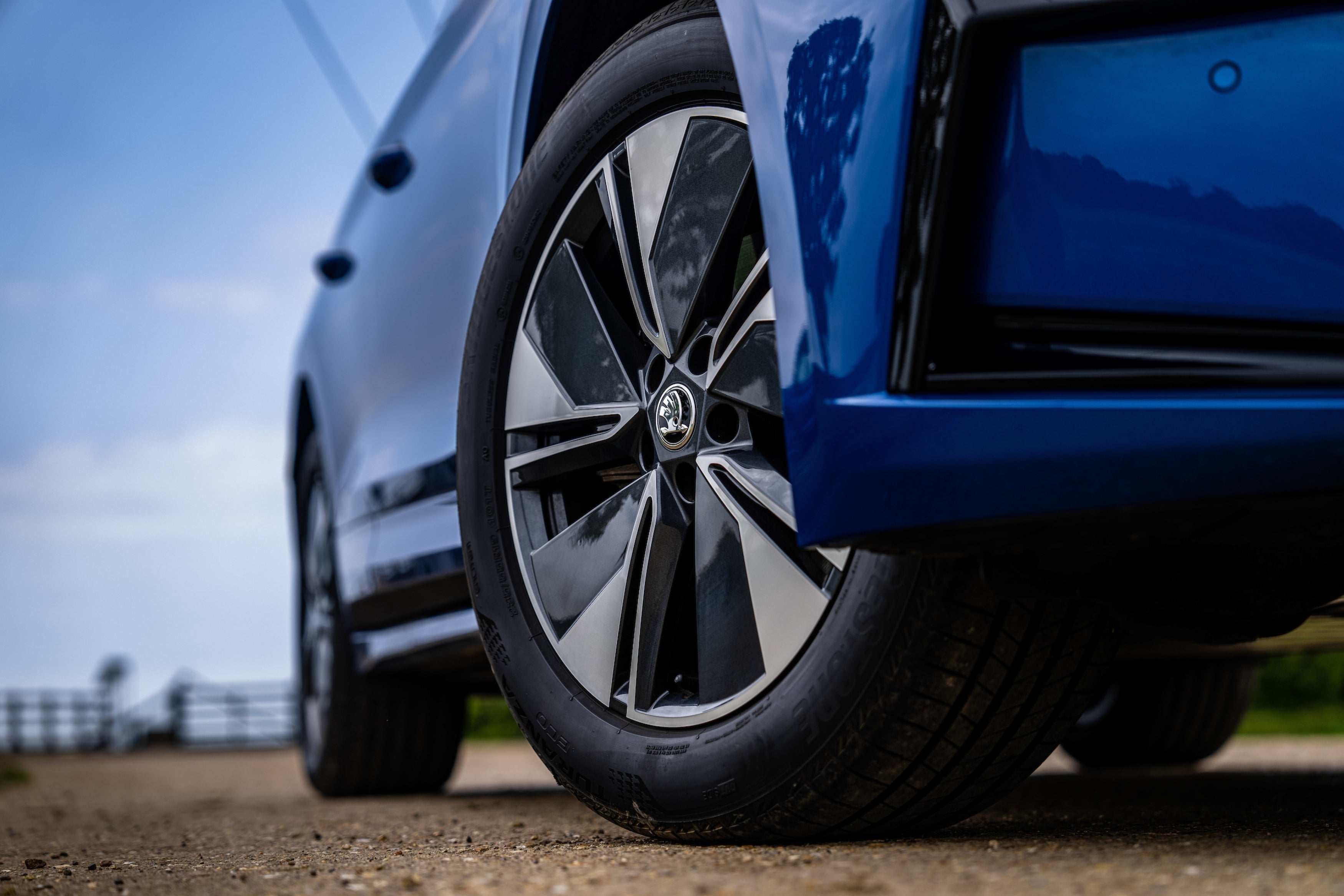
They say that EVs have lately taken a bit of a dip in popularity, which is true, but that hasn’t yet translated into heavy discounts on their usually steep asking prices. It’s not profiteering, because there is now ample competition, but merely a reflection of the fact that BEVs (battery electric vehicles) are more costly to make than ICEs (vehicles powered by internal combustion engines). I need hardly point out the implications for the cheap mass-motoring we’ve become accustomed to.
THE SPEC
Skoda Enyaq iV 82kWh vRS 4x4
Price: £55,830 (as tested; range starts at £38,970)
Engine capacity: Single electric motor, rear drive powered by 82kWh battery
Power: 299 PS
Top speed: 111mph
0-60mph: 6.4secs
Fuel economy: 3.8m/kWh
CO2 emissions: 0
So the Enyaq Coupe vRS actually stacks up reasonably well on price, given those caveats. It’s bigger and faster than an equivalently priced version of BMW’s latest electric SUV, the iX1, and is competitive against the excellent Kia EV6, for example.
It’s the top-of-the-range Enyaq, so the kit is comprehensive and the quality of materials used is uniformly high. They’ve even illuminated the slats in the grille for an extra touch of electric action, and the coupe styling works well; unless you need to lug furniture around in the back, it’s just as practical as the non-coupe version.
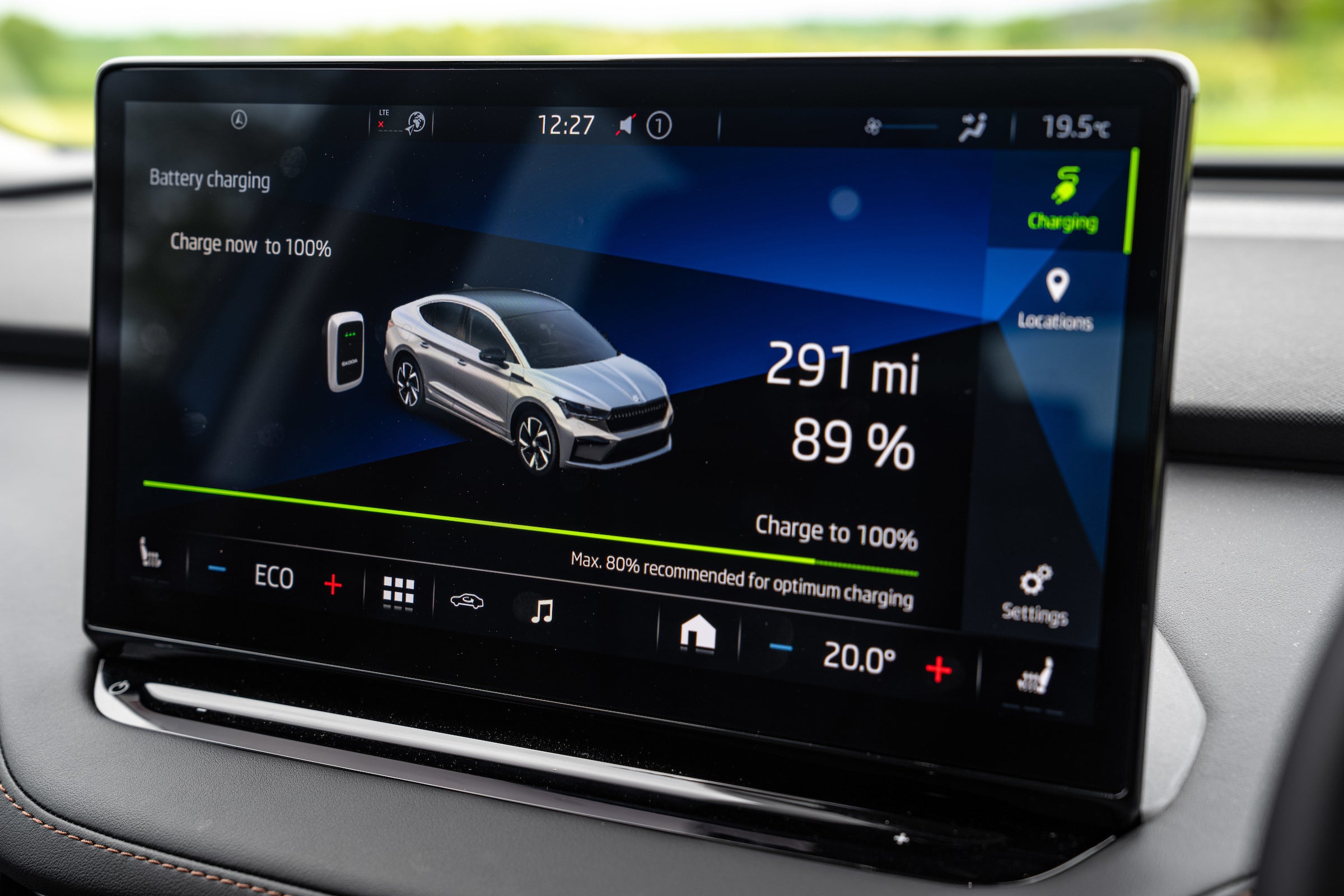
It’s traditionally sober Skoda inside, in contrast to some of the funkier competition, such as the Nissan Ariya and the Hyundai Ioniq 5 – as I say, there really are a lot of BEV offerings these days. The now familiar Tesla Model Y might also be a contender (though the Skoda is probably better built), as is the similar Cupra Born, albeit not quite as quick. And don’t forget the sportier but expensive Ford Mustang Mach E-GT (still that company’s sole BEV model on sale in the UK).
Few can rival the huggy sports seats in nice soft leather in the Enyaq, which are exceptionally supportive and comfy. It’s pretty refined on the move, but its slightly bluff frontage generates some wind noise at higher motorway speeds. So long as you don’t push it on the twisty bits, it feels and is secure.
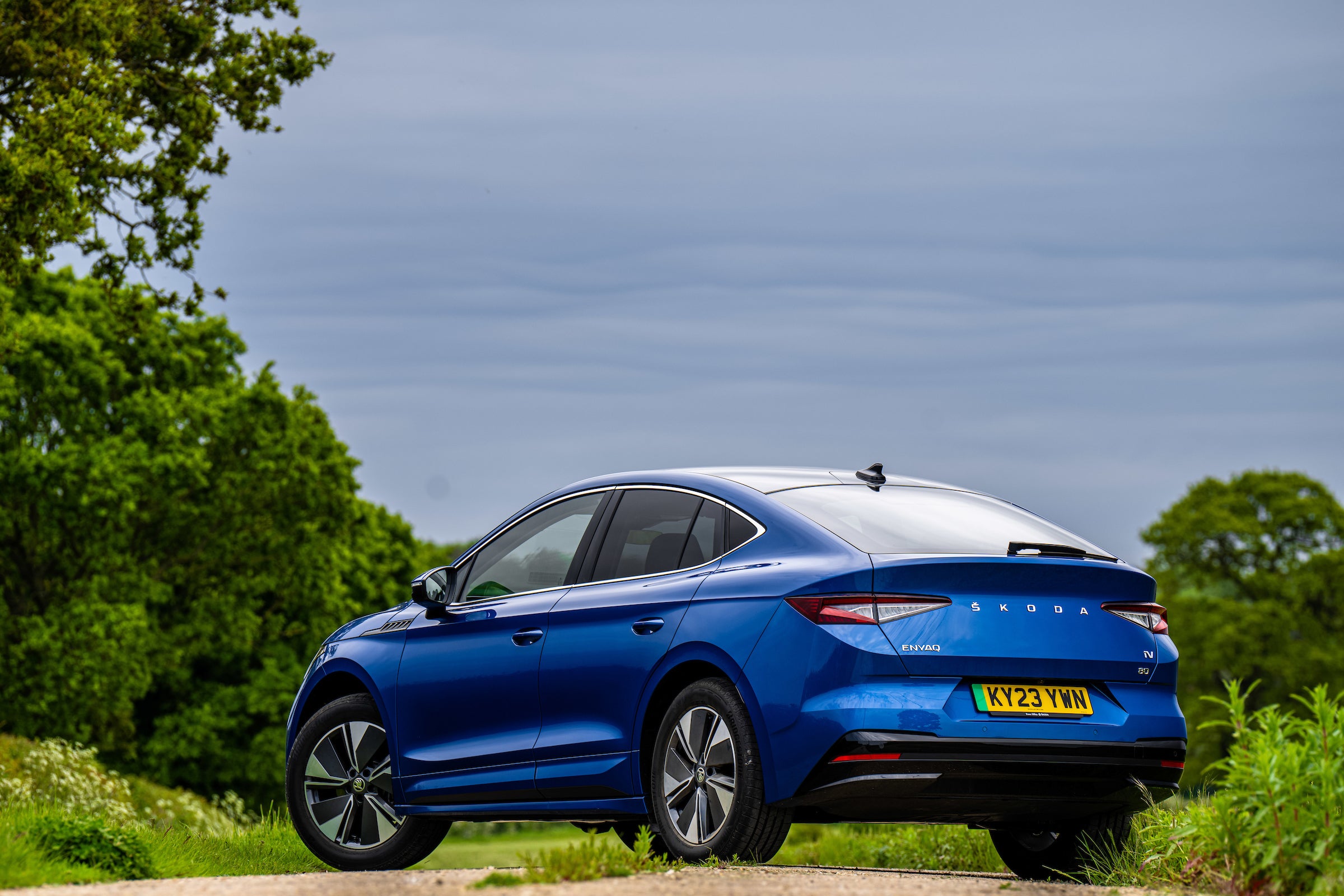
The Skoda’s range – let’s say 250 miles plus, in real-world conditions – is good, though not class-leading (Kia and Hyundai tend to do best here). As with all electric cars, the real-world range depends quite radically on the temperature and type of driving – cold weather on the motorway will run the power down far more quickly than low speeds around town on a hot day.
That means that it’s difficult to put a single figure on it, and to draw useful comparisons between BEVs. But we do know that the Enyaq won’t go more than 7.351 miles sideways in real-life conditions. Which is good to know.







